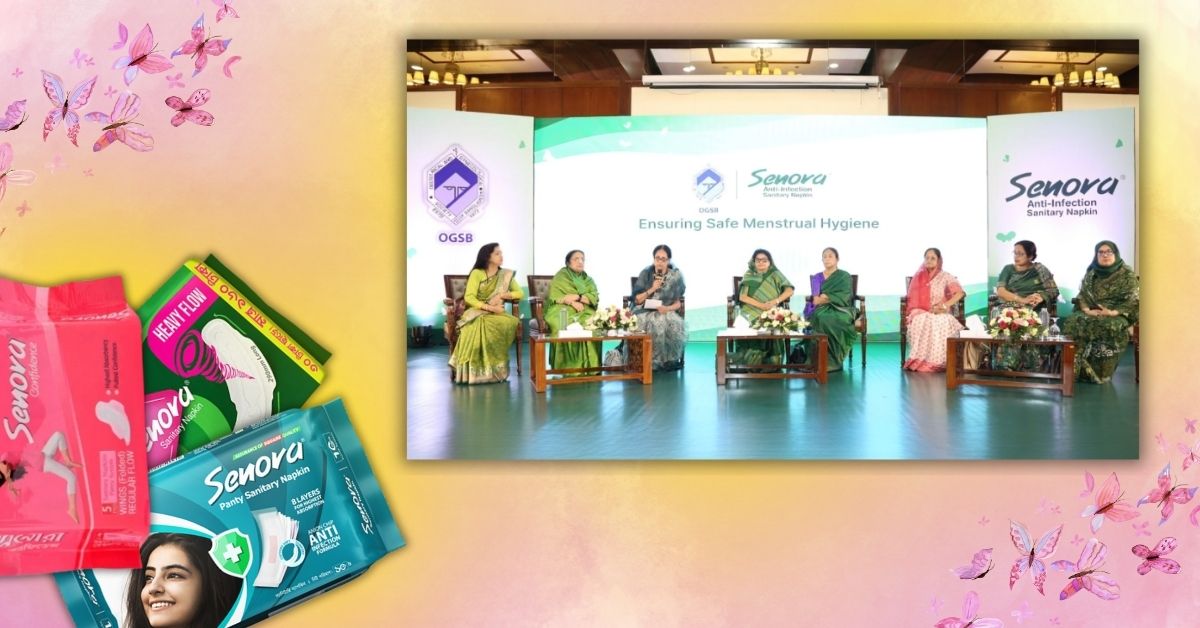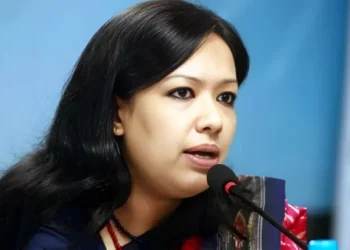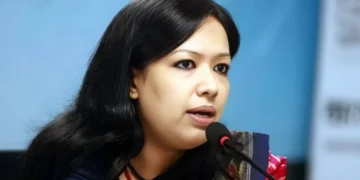In a country where whispers often replace conversations about menstruation, a powerful gathering recently unfolded quietly yet impactfully.
Menstrual hygiene in Bangladesh is in crisis due to stigma and lack of resources. Discover how Senora’s bold campaign is breaking barriers, empowering women, and aiming to reach 2,500 workplaces and schools by 2030.
Organized by Prothom Alo in collaboration with Senora and the Obstetrical and Gynaecological Society of Bangladesh (OGSB), a roundtable brought together health experts, educators and change makers who are determined to break the silence around one of the most overlooked health issues faced by women in Bangladesh: unsafe menstrual hygiene.
For many girls and women in our country, menstruation is still wrapped in shame, silence, and secrecy. It begins with a hush at home, continues with giggles and discomfort in school, and eventually becomes a lifelong discomfort for countless women. What this silence hides, however, is a growing crisis.
A Reality Many Live But Few Speak About
Every month, millions of women and girls in Bangladesh manage their periods with limited knowledge and even fewer resources. Most don’t talk about it—not to their mothers, not to their friends, not even to their doctors. This social taboo comes with painful consequences.
It’s whispered about between mothers and daughters, hidden in school bags, and avoided in classrooms and workplaces. Girls often grow up feeling embarrassed and unsupported during a time when they need understanding the most.
During the roundtable discussion, health experts painted a stark picture. A large number of Bangladeshi women specially from low-income families still rely on unhygienic cloths or chemically scented pads, often reusing materials that are not properly cleaned or dried. This leads to alarming risks: infections, reproductive health complications, and long-term gynecological issues. It is about dignity, not simply discomfort. More importantly, it concerns health and life.
Why Aren’t We Talking About It?
The stigma surrounding menstruation has deep roots. It’s passed down silently through generations. Girls are taught to hide their periods, to whisper when they need a pad, and to feel ashamed of something as natural as breathing. At the roundtable, voices rose in unison.
Speakers stressed that change must begin at the most personal level—inside our homes. Girls need to grow up knowing that their bodies are not a source of shame. Only then can schools and workplaces follow suit. Only then can we truly say we’re moving forward.
Read More: Mirza Abbas: “What the Government Couldn’t Do in 9 Months, It Won’t Manage Even in 90 Years”
A Collective Mission: Awareness, Access, and Action
The good news is that there is a hope and it’s already in motion. Senora and OGSB have announced an ambitious, heartfelt campaign aimed at sparking real change. Together, they plan to reach:
-
2,000 schools
-
500 garment factories
These campaigns will focus on awareness and accessibility. Senora’s campaign is a beacon of hope, but real change happens when we all join in. They will educate young girls and working women about safe menstrual practices, the importance of using clean and safe sanitary products, and how to maintain hygiene even with limited resources.
The goal is bold yet necessary by 2030, at least 60% of Bangladeshi women should have access to and regularly practice safe menstrual hygiene. For half of our people, it’s a vision of a better, more respectable future, not just a goal.
What Needs to Change?
To achieve this goal, a few essential shifts are needed:
-
Education: Menstrual health must become part of school curriculums for girls. Female Teachers need proper training to talk about these topics without discomfort.
-
Access: Affordable sanitary pads must be available in rural markets and urban slums alike. Tax reductions or subsidies could help make this a reality.
-
Infrastructure: Schools and workplaces must provide clean toilets, running water, and disposal facilities. It’s about honoring women’s needs, not just about cleanliness.
-
Breaking the taboo: We need more public discussions, media representation, and advocacy to normalize menstruation in our society.
Because Every Girl Deserves to Live Without Shame
This is a call to action, not merely a campaign. A call to mothers who need to talk openly with their daughters. A call to fathers who need to support their wives. A call to policymakers, employers, and educators to create systems that protect and empower women.
Because no girl should skip school due to her period. No woman should risk her health because she can’t afford a pad. And no one should ever feel ashamed for something so natural.
This is our moment to make it right. To rewrite the narrative. To stand with every girl in Bangladesh and say:
Your health matters. Your dignity matters. You matter.
Share via:


















